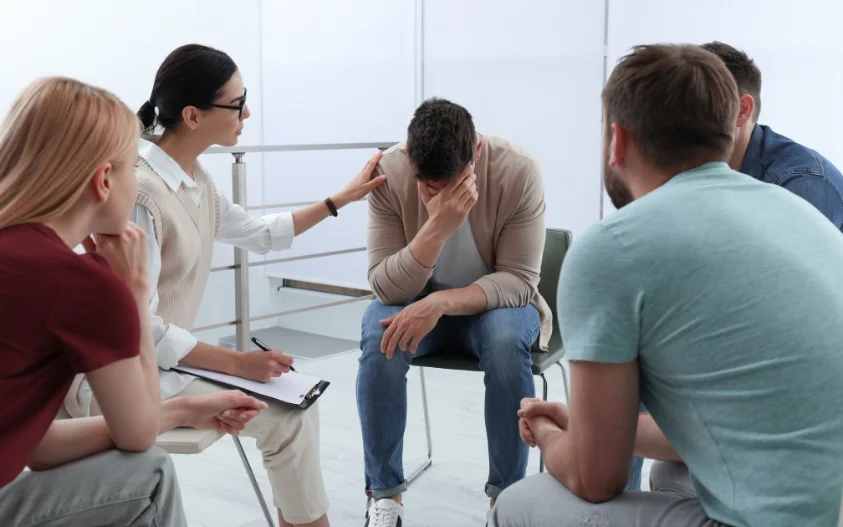24/7 Helpline:
(866) 899-221924/7 Helpline:
(866) 899-2219
Learn more about PTSD Treatment centers in Berkeley Springs
PTSD Treatment in Other Cities

Other Insurance Options

Excellus

United Health Care

Amerigroup

MHNNet Behavioral Health

BHS | Behavioral Health Systems

Anthem

Evernorth

Cigna

GEHA

WellCare Health Plans

BlueShield

PHCS Network

CareFirst

BlueCross

Horizon Healthcare Service

WellPoint

Carleon

CareSource

Medical Mutual of Ohio

Choice Care Network

Eastridge Health Systems
Eastridge Health Systems is a private rehab located in Berkeley Springs, West Virginia. Eastridge He...













